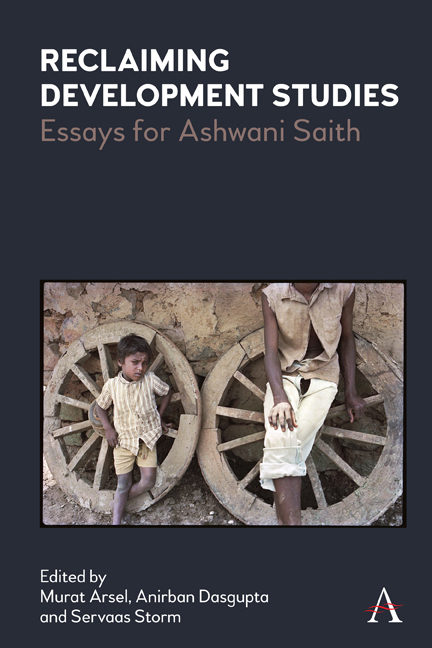Chapter One - Introduction: The Why and How of Reclaiming Development Studies
Published online by Cambridge University Press: 23 February 2022
Summary
Development Studies on an Unsteady Terrain
The ground on which development studies is built has been experiencing tectonic shifts. The two social scientific traditions beneath it, development economics and the interdisciplinary study of socio-economic and cultural change outside the capitalist core, have been moving apart for decades, imperceptibly at first but steadily and perhaps increasingly rapidly in recent years. While they have always used different methodological approaches, the idea of development as a long-term process of societal transformation had been a shared lodestar. As they have been moving away from each other, they have adapted vastly different ideological postures and ontological assumptions that essentially seek to negate each other's validity and come to conceptualize development in fundamentally incompatible ways. While critical introspection and lamentation that the field is going through a crisis have been permanent fixtures of development studies (Arsel and Dasgupta 2015), these changes are particularly momentous.
Development studies as a field coalesced in the post-World War II as part of a political and intellectual response to decolonization processes. This is of course not to suggest mistakenly – as it has been common since Escobar's ‘Encountering Development’ (1996) – that ‘development’ itself can be dated back to this very moment. What was consolidated then was a particular type of intentional development (Cowen and Shenton 1996). This reductive understanding is problematic because intentional development dominated by the interests of the West is not the only way of configuring a transformative relationship between advanced industrialized nations and their former colonies, and more productive exchanges between the North and the South are possible. Even more importantly, as Cowen and Shenton brilliantly show, the idea of development is much larger and embodies an instinct that sees the possibility of universalizing material emancipation. This latter dynamic, immanent development, animated by what Berman aptly called a ‘modern spiritual quest’ (1983, 88), is vastly more complex and enduring than anything that can be conceived by international development agencies.
Representing this richness of ambition, development studies itself has proven to be much more than its two constituent traditions, showing the potential to represent what is best of interdisciplinary and transformative social science (Payne and Phillips 2010).
- Type
- Chapter
- Information
- Reclaiming Development StudiesEssays for Ashwani Saith, pp. 1 - 16Publisher: Anthem PressPrint publication year: 2021

